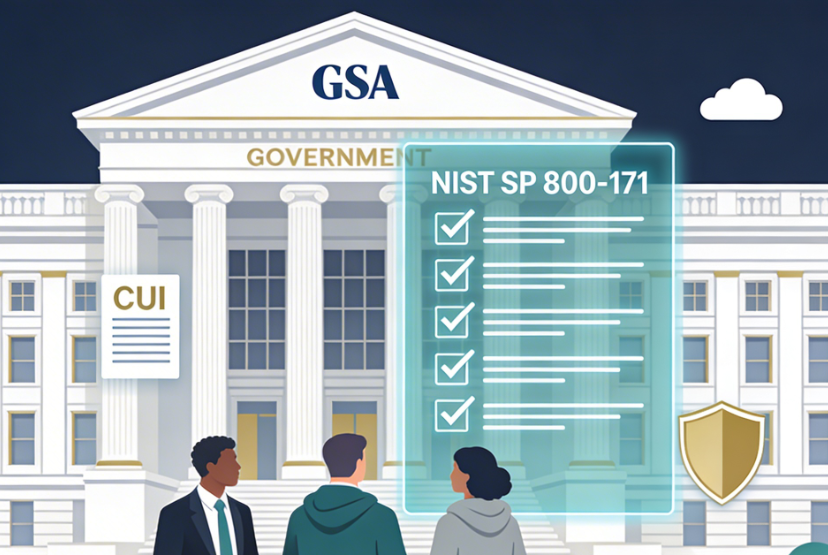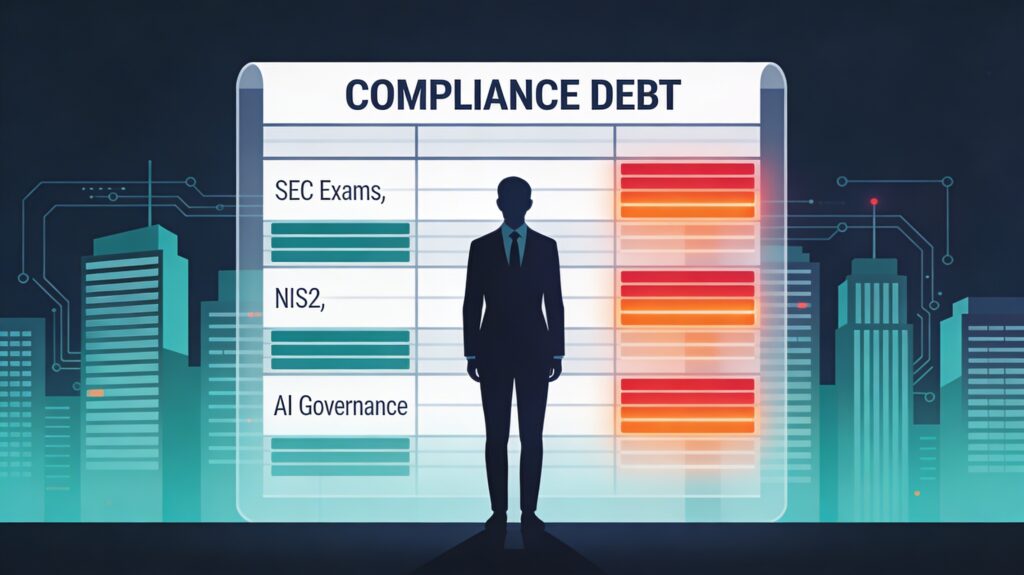The integration of artificial intelligence into business operations has brought sweeping changes, creating opportunities and compliance challenges. As organizations scramble to harness AI’s potential, a corresponding demand has emerged for specialized oversight that bridges legal, technical, and ethical gaps. This demand is fueling the rise of a new professional: the AI Compliance Officer. Their task is clear — build defensible and business-aligned frameworks for managing AI that match the pace of regulatory and technological change. As AI technology grows more embedded in critical business processes, organizations are recognizing that compliance cannot be an afterthought, but must instead be a proactive, strategic function of AI innovation.
The AI Compliance Officer: Role and Responsibilities
An AI Compliance Officer is responsible for ensuring that an organization’s use of AI is compliant with the fast-evolving network of laws, regulations, and ethical standards, so it’s no surprise that many think it should be a role assigned to the legal team. We challenge that opinion, because AI governance requires expertise in risk management, regulatory intelligence, data practices, and the practical realities of deploying AI at scale. In short, it naturally slots into the expertise of the IT compliance officer.
Which means that many organizations will be looking toward their MSP to fill this role.
Similar to a compliance officer dealing with PCI or HIPAA, AI Compliance Officers serve as a bridge between IT and executive leadership, creating governance structures that bring clarity and accountability to AI deployment. Their responsibilities often include:
-
Conducting regular risk assessments of AI systems to evaluate bias, fairness, privacy, and security.
-
Developing, updating, and enforcing policies and documentation relating to AI ethics and compliance.
-
Designing and implementing transparent auditing processes, ensuring AI models and decision pipelines can be explained and reviewed.
-
Staying ahead of evolving global regulations (such as the EU AI Act and emerging U.S. state-level laws), and translating these into actionable business policies.
-
Acting as a point of contact for regulators, clients, and internal teams on all matters related to AI governance.
Does this sound familiar? Sure…because the demand for compliance is increasing globally, and this is just another facet of the bigger curve. The AI Compliance Officer’s function is moving from a niche, technical specialty toward a mainstream necessity.
Why MSPs Are Poised for the AI Compliance Leap
MSPs are uniquely positioned to become AI compliance officers for their clients due to their existing expertise in cybersecurity, risk management, and IT service delivery. As AI regulations grow increasingly complex and widespread, clients are looking for partners who can manage not only technology but also the legal and ethical compliance aspects of AI adoption. MSPs can leverage their trusted advisory roles to help clients navigate regulatory uncertainty and implement robust AI governance frameworks that are defensible and aligned with business objectives.
Clients increasingly expect MSPs to provide end-to-end AI compliance services that go beyond simple automation. Effective AI compliance requires a blend of advanced technologies, human oversight, and integrated solutions that balance automated processes with expert judgment. This holistic approach helps organizations identify and mitigate AI-related risks such as algorithmic bias, privacy violations, and transparency issues while keeping pace with evolving laws like the EU AI Act or emerging U.S. AI regulations.
By offering AI compliance as part of their service portfolio, MSPs unlock new revenue streams and differentiate themselves against compliance laggards. The opportunity is significant: we’re seeing a growing number of SMBs that choose an MSPs who can provide comprehensive compliance support alongside traditional IT services. However, to capitalize effectively, MSPs must adapt their people, processes, and tech capabilities to deliver real compliance outcomes. This includes adopting risk assessment tools, compliance reporting systems, and ongoing regulatory monitoring combined with skilled human oversight to drive trust and transparency.
This evolution will not only help clients mitigate regulatory risk but also position MSPs as indispensable partners in the AI economy.
Key Compliance Expectations Facing MSPs
MSPs are encountering heightened expectations from clients when it comes to AI compliance. Clients are looking beyond traditional IT management, demanding a full suite of compliance services that include regular risk assessments, transparent reporting, and expert guidance on meeting evolving regulatory requirements. They expect MSPs to go further than simple automation — offering a blend of advanced tools and skilled human oversight to ensure policies, audits, ongoing monitoring, and staff training are consistently enforced. According to recent industry analysis, 39% of SMBs now prefer working with MSPs who deliver holistic, end-to-end compliance solutions, signaling a shift in MSP-client relationships and service models.
For MSPs, this means putting in place systematic frameworks built on best practices: integrating people, processes, and platforms to deliver compliance outcomes that are both robust and repeatable. Effective client communication is also crucial — clients are seeking transparency, up-to-date documentation, proactive regulatory updates, and clearly articulated compliance roadmaps. MSPs that position themselves as trusted advisors and maintain agile, comprehensive service offerings are well positioned to lead as compliance expectations continue to grow.
Regulatory Trends and Client Pressures
Global AI regulation is evolving at a rapid pace, and the impact on both MSPs and their clients is profound. Legislation such as California’s CCPA/CPRA are reshaping how AI systems must be governed at every level of the technology supply chain. By 2026, it’s predicted that half of all governments worldwide will require responsible AI practices in their jurisdictions, driving a dramatic shift in compliance investments.
For clients, the explosion of regulatory complexity presents significant pain points: uncertainty over new laws, difficulty interpreting global standards, high potential costs of non-compliance, and the pressing need for integrated cyber and compliance solutions. Clients increasingly look to MSPs as guides who not only comprehend the new landscape but can actively orchestrate their compliance efforts. For MSPs, staying ahead of these regulatory developments isn’t just a value-add — it’s becoming table stakes.
Tools, Skills, and Processes MSPs Need to Succeed
MSPs committed to excelling in AI compliance must adopt a new arsenal of tools, workflows, and capabilities. Essential elements include compliance management platforms like Blacksmith, real-time regulatory monitoring tools, advanced risk assessment and audit technology, and frameworks that map across major laws like CMMC, NIST, PCI, and beyond. These technologies should enable compliance tracking, automated alerts, centralized documentation management, and streamlined cross-mapping for multiple frameworks — all integrated seamlessly with client systems.
However, tools alone are not enough. Expert human oversight remains paramount: top-performing MSPs combine these platforms with skilled professionals who interpret risks, contextualize guidance, and deliver tailored client communication. Cross-functional training in law, regulation, data privacy, and client communication help MSP teams stand apart, while systematic processes ensure every engagement is governed by repeatable, auditable best practices. The hybrid model of automation and expert oversight isn’t just recommended — it’s what clients now demand and what regulatory complexity requires.
How MSPs Can Structure AI Compliance Services
To effectively serve as AI compliance officers, MSPs must rethink the way they package and deliver compliance services. Forward-thinking MSPs are evolving their offerings to provide layered, managed AI compliance solutions as both standalone services and value-adds atop existing IT and cybersecurity contracts. This approach involves integrating AI governance frameworks — such as those derived from NIST CSF and CMMC —directly into their managed service portfolios and operational workflows.
Packaging also means building transparent reporting systems, ongoing monitoring regimes, and routine compliance health checks for clients. Some MSPs are developing consultative add-ons, such as AI risk assessments, compliance project playbooks, and staff training programs, to support clients’ internal teams. By operationalizing compliance as a service, MSPs can ensure systematic, consistent application of best practices while also positioning themselves as holistic partners in digital trust and regulatory readiness.
Future Outlook: The MSP as Trusted AI Compliance Partner
Looking ahead, demand for MSP-driven AI compliance solutions is expected to accelerate sharply as regulatory enforcement and AI adoption both intensify. Early-adopter MSPs have an opportunity to differentiate not just on technical support, but on trusted, proactive risk management — delivering insights, foresight, and peace of mind for a diverse range of industries, from healthcare to finance to manufacturing. MSPs that invest now in compliance talent, automated monitoring infrastructure, and robust frameworks will be best placed to win and retain clients who require continuous, auditable, and future-proof governance of their AI assets.
Specialization in particular verticals or regulatory frameworks — such as healthcare privacy laws or financial conduct standards—can further amplify value and market standing. As AI continues to transform core business operations, MSPs that embrace this expanded compliance remit will become essential partners in building resilient, regulation-ready organizations for the long term.
Wrapping It Up
The rise of the AI compliance officer stands as a defining trend in the intersection of technology and regulatory management — and MSPs are at the heart of this transformation. By expanding their capabilities to embrace AI governance, MSPs are not only addressing urgent client needs but are also charting a new course as strategic leaders for responsible digital innovation. Embracing the tools, frameworks, and expertise required will allow MSPs to turn compliance from a liability into a source of distinctive value, growth, and trust.



